Mathis Pfäffli
lucid strolls
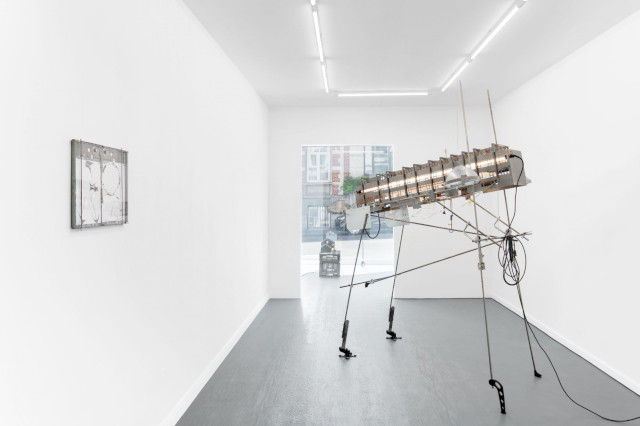
Installation view
Tiny Houses are for tiny dreams. But tiny is the new huge.
DREAMING
Dreaming… what a beautiful intended structural malfunction of the brain. while you are asleep, your relations towards reality may run riot. But sometimes it’s all we’ve got. After hours binge-watching documentaries about fractals, once my sleep became a horrible yet lusty trip through time and space: The closer I looked; the larger things became. I almost vanished in eternity. Fractals prove the paradoxical opposite of the general assumption that distance can create clarity and vicinity details. Coastlines, for example. The smaller the scale, the longer it becomes due to increasing measurement accuracy. No human being can measure them conclusively. Your gaze is a wanderer, not seeing anything. The phenomenon is also haunting Mathis’s drawings and eyeglass objects. The longer I stare at the lines, geometric shapes, and traces of the pencil, the less I understand their mechanism of action. And this even though everything about them seems to be subject to strict principles of order. But the longer I stare the stronger the gut feeling becomes that they are all in their rightful place. Probably chaos is the strictest order in the end. His eyeglass objects come tongue in cheek. Puns. Equipped with silly little stones that remind me of Dust and Sweat, they do the opposite of their actual task. We mistakenly use the object of observation as a tool for something it’s not made for – watching the layers of time it basically consists of.
It is only since the rise of postmodernism appropriated questions about scaling, space and time; since perception instead of the quality of reality is on the stake, fractals have become my nightmare. I had been contenting with everything repeating itself, on a smaller and larger scale, for a long time. But somehow this certainty has fallen apart. It cracked. Would tiny artists make tiny works in a tiny studio? No Idea. Each level of scaling holds its own secrets. What captivates me about Mathi’s small houses is their ability to reveal social relationships, networks, and memories as signifiers. Not RATHER they are so tiny, but BECAUSE… When I first encountered them in his studio in Zurich, they reminded me of two things:
1st designs for stage sets for the theater. (This connects to a discourse that began as early as the 1960s, and which has influenced Minimalism, if not all postwar sculpture. It was the question of objecthood and to what extent the objects, which came across as so dispassionate and related to their materiality, were actually dripping with ideology (slightly polemically speaking).)
2nd the idyllic model worlds in which middle-aged men take refuge from reality (Optionally flanked by a model railroad). Can a model autonomize itself from its real-life example? (This concerns the first point as well). I felt a distinct discomfort in the pit of my stomach when it became obvious that there are indeed people who can answer this question with a jovial YES.
MOVING IN
Let’s get practical - we’re moving in.
We shrink ourselves and move through the palaces that are our due.
We don’t care about land prices, operating costs.
We don’t care about return on investment, maintenance costs, cleaning expenses.
We don’t care about indoor climate and soil sealing because these are just words to us anymore.
At the very moment, in the real world long vanished words will be the furnishings in these tiny houses in which we make ourselves comfortable: The neighborhood, the negotiations, the collective solitude, the company.
We roam along the warm and silver metallic walls;
we look attentively at the abnormal luminous objects that blend into the objects;
We let ourselves drift by the memories and human conditions that were role model for the houses and we realize that we are no longer a thing, but a specter.
Hanging, lying, stomping, the externalized and materialized memories maneuver through the exhibition space. Half idea, half thing, neither just a word nor just material - just like the houses themselves. Unlike their great examples, these houses are allowed to position themselves outside of space and time. They are reservoirs of evicted dreams, ideas, networks of friends and hopes. They are a tiny alternative past that impacts a tiny fragment of the present. Specters have no dimensions – that’s what they share with the world of words and ideas. But they must move in time and space, that’s what they have in common with us. Remember the house on the chicken feet of the witch Baba Jaga [Баба-Яга]? She could never go far from her house so as not to lose her magical powers. Her house was not only her dwelling, it is rather a material extension of her skills as well as her physical body and so are this objects. Still tiny, we stand at the window. We look at the world from the houses that are not houses on glasses that are not glasses but nothing but artifacts of centuries long blindness. We look at the carefully stored drawings that show how the world does not work. We witness a tiny but proper collection of functional malfunctions.
EVICTION
Just kidding. No house should ever be evicted. Let the specters dance.
Anne Zühlke
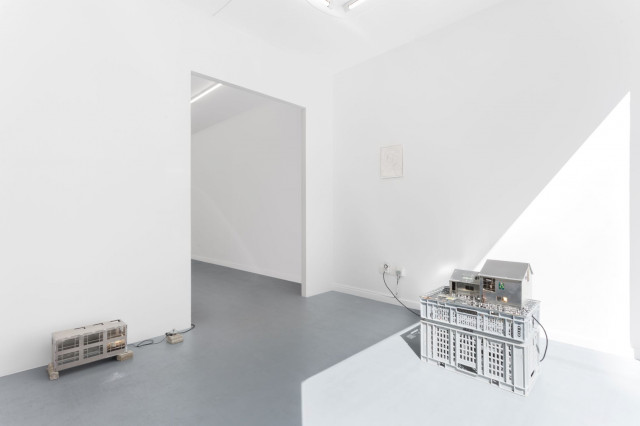
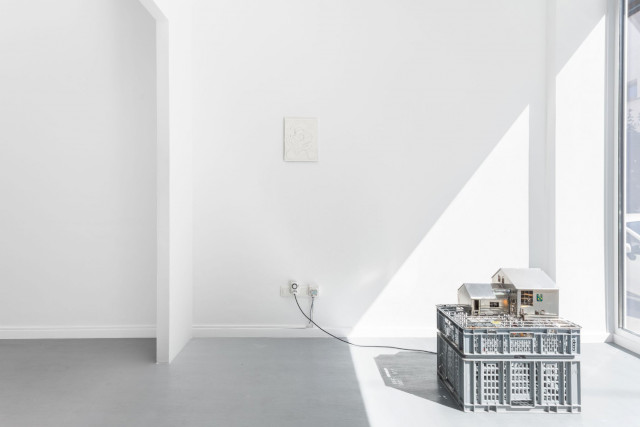
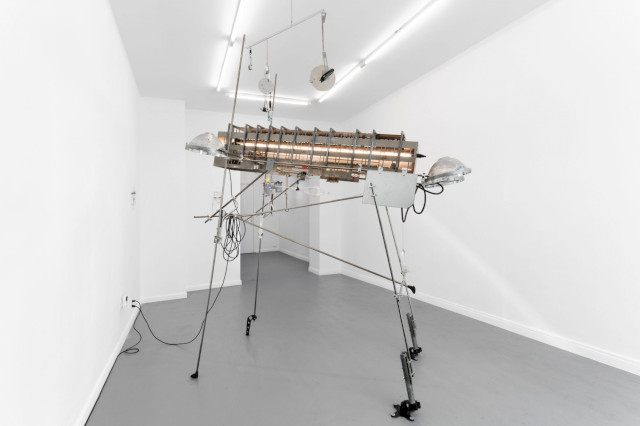
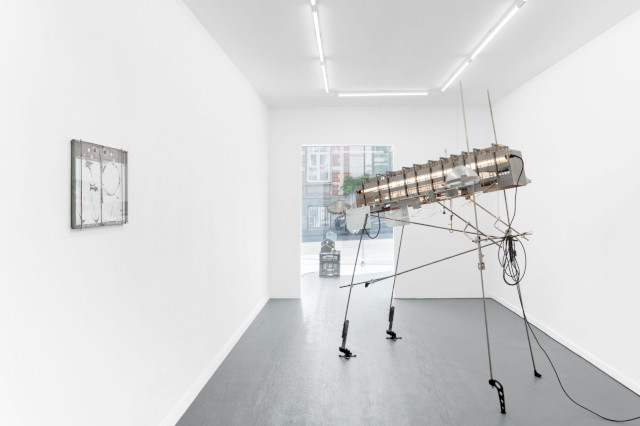
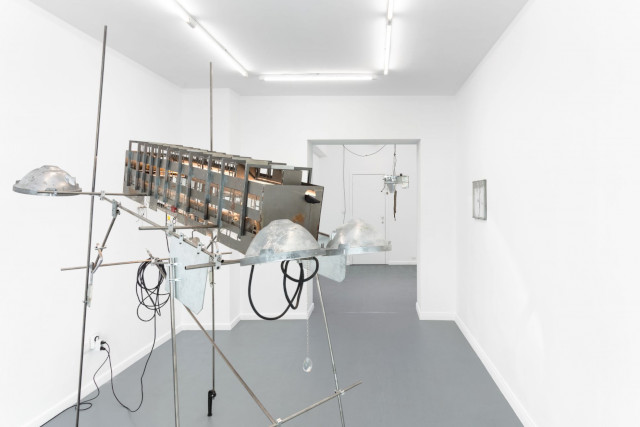
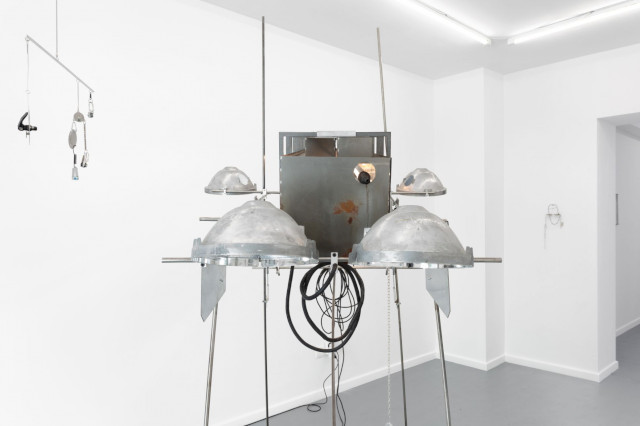
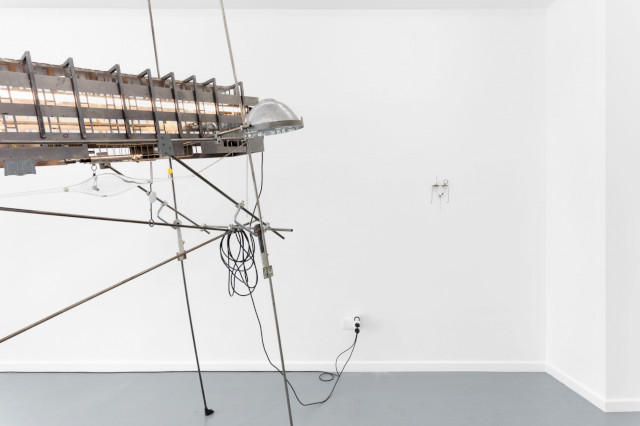
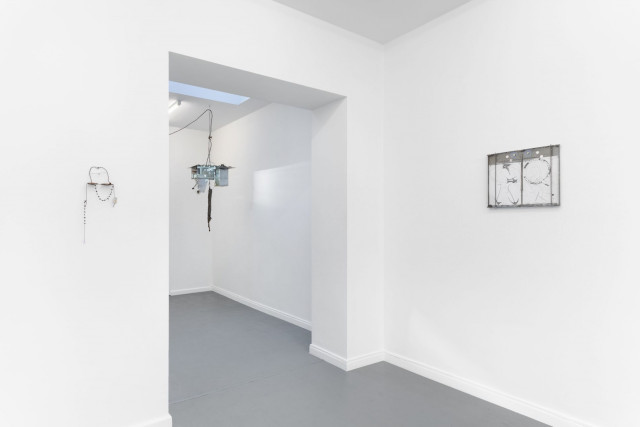
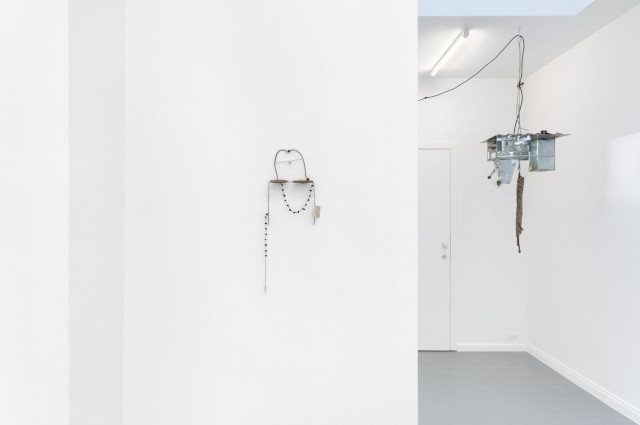
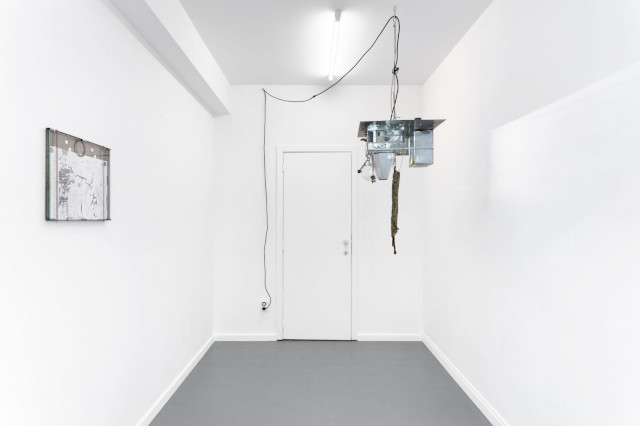
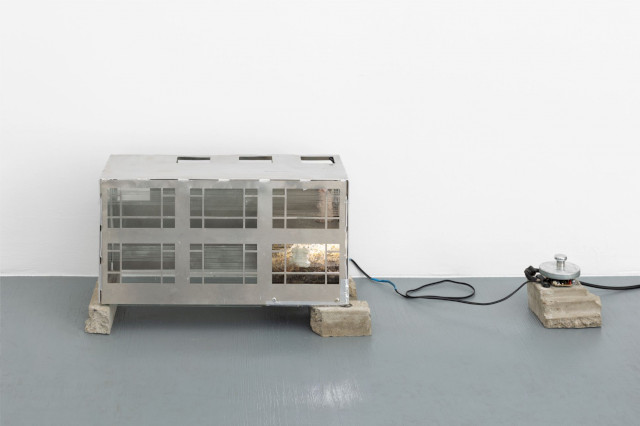
2020
Aluminum, glass, concrete, rivets, a shovel of garden soil, remaining seeds from spring, LED, cables
45 × 20 cm
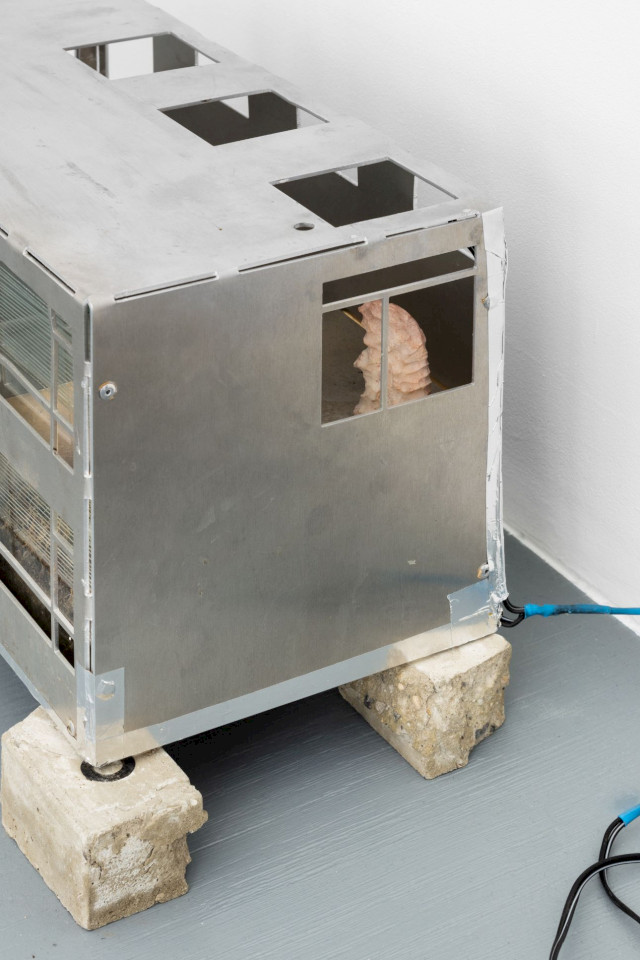
Detail
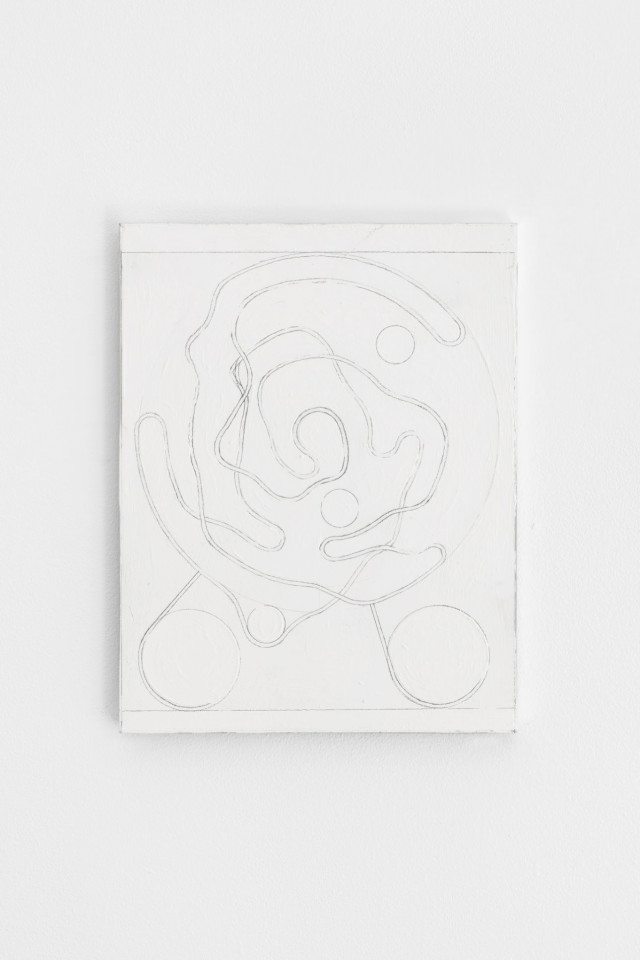
2022
Graphite on gesso, aluminum
34 × 26,5 cm

2023
Aluminum, electronic scrap, LED, cable, magnets, found objects, glass, concrete
Approx. 60 × 60 × 50 cm

Detail
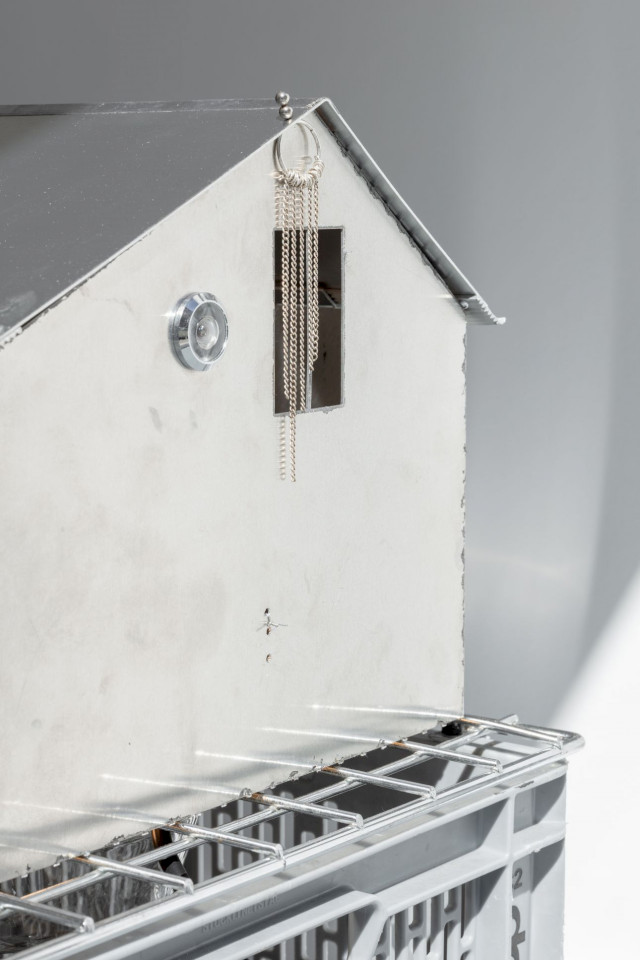
Detail

Detail

Detail
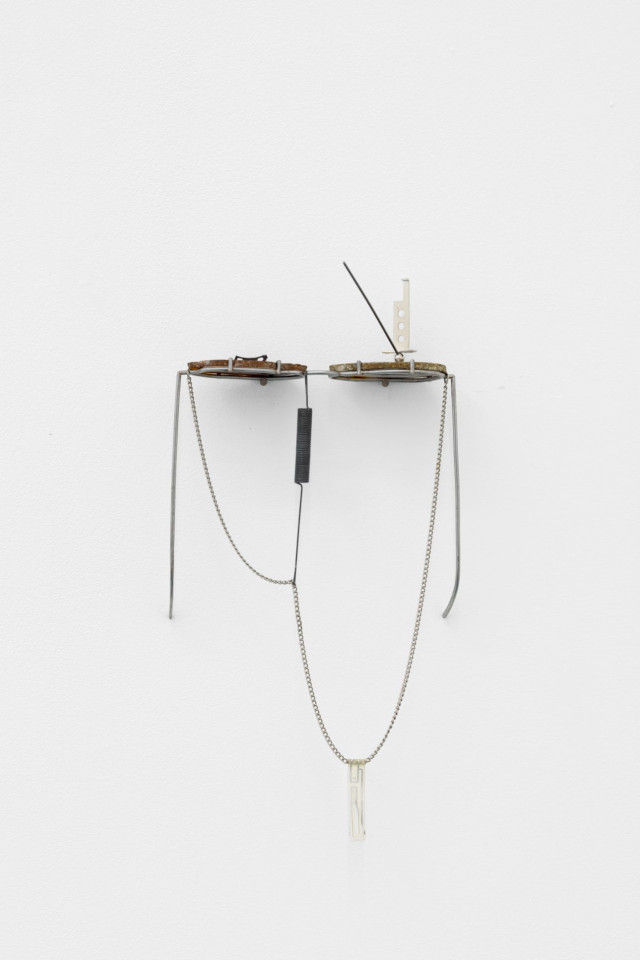
2022
Steel, agate, findings, magnets, chains, snap hook; in collab. with Aline Battegay
17 × 20 cm
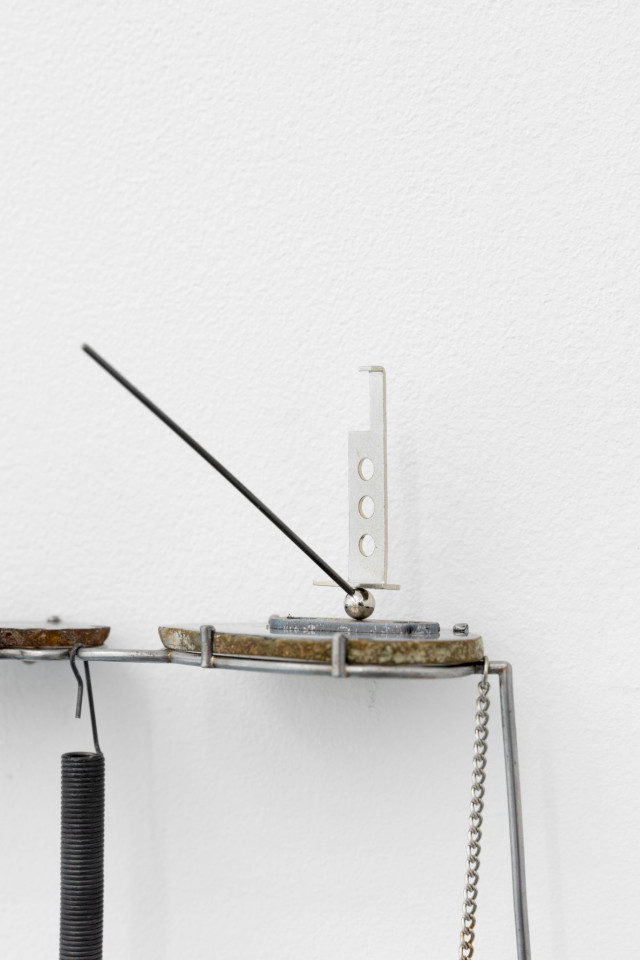
Detail
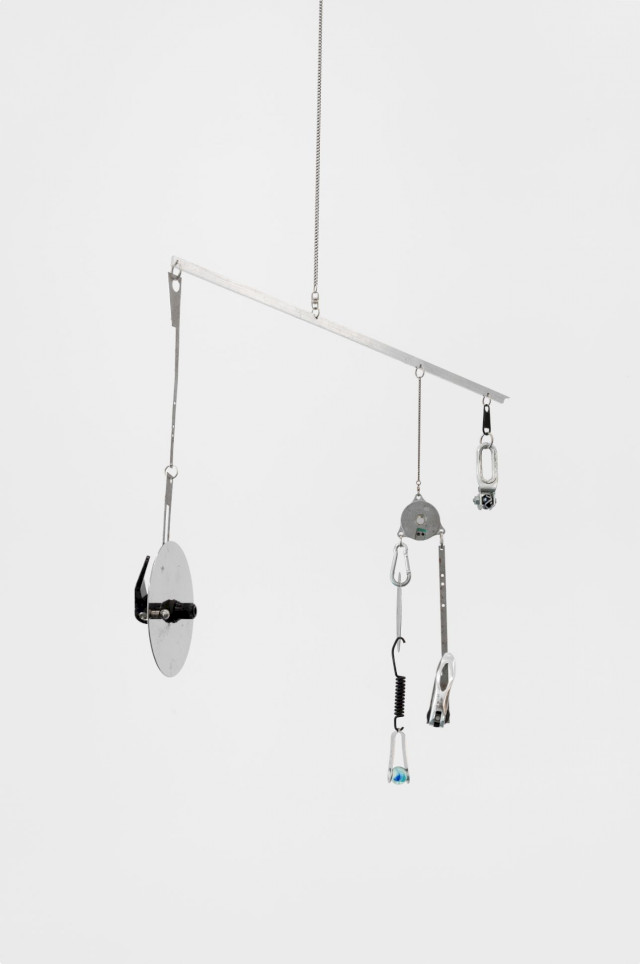
2022
Aluminum, steel, findings, fabric, magnets, marble, chains, snap hook
Dimensions variable
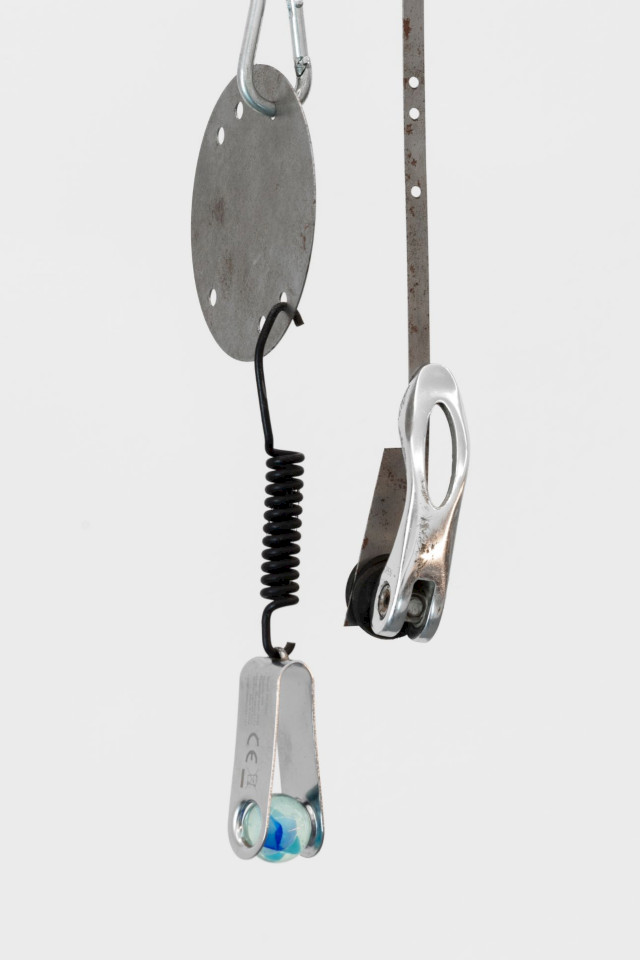
Detail
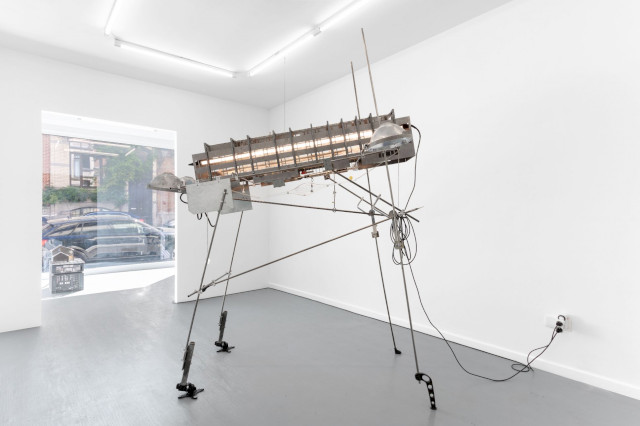
2023
Glass, aluminum, plastic, reused steel tubes, collected glass vessels, lost things found somewhere in the gaps of the pavement, a tiny shell, flint stone, parts of a heating system from an abandoned nursery, found devices, LED tube, electrical wire
Dimensions variable
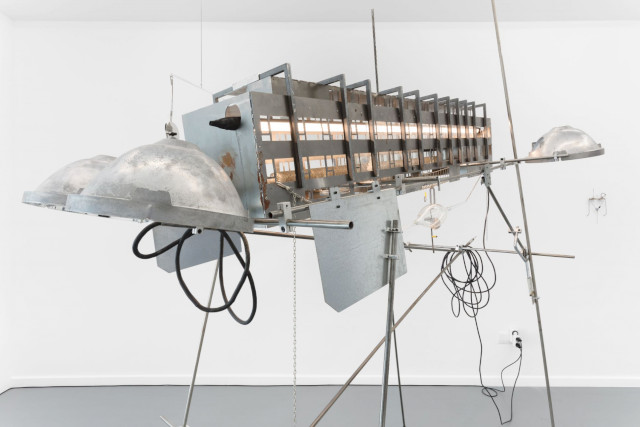
Detail
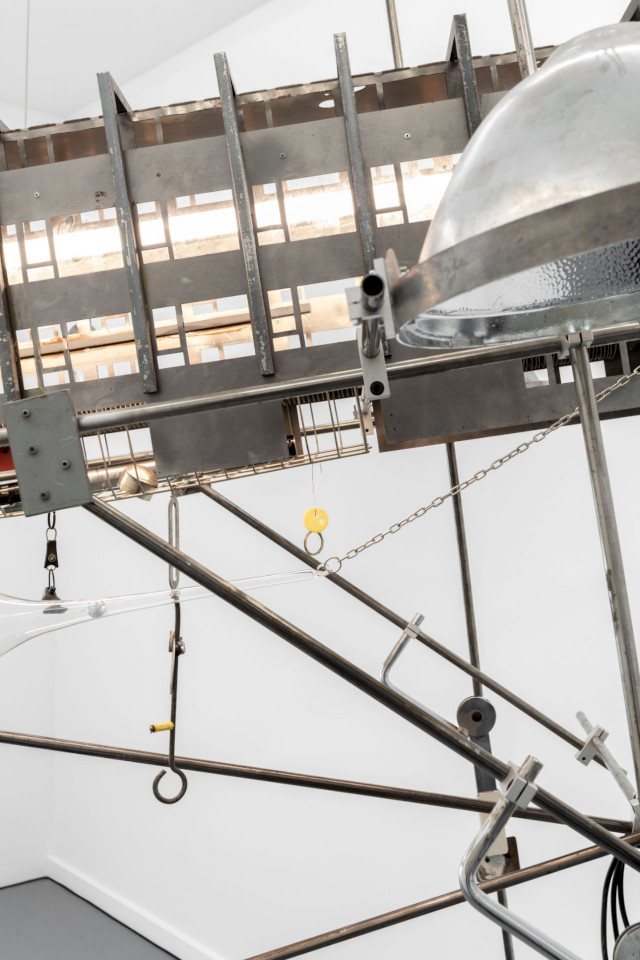
Detail
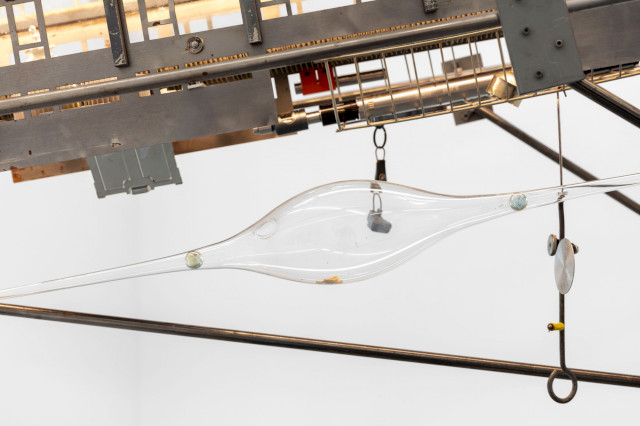
Detail
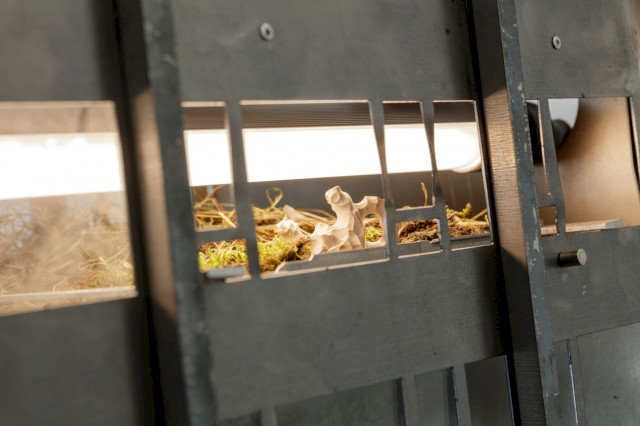
Detail
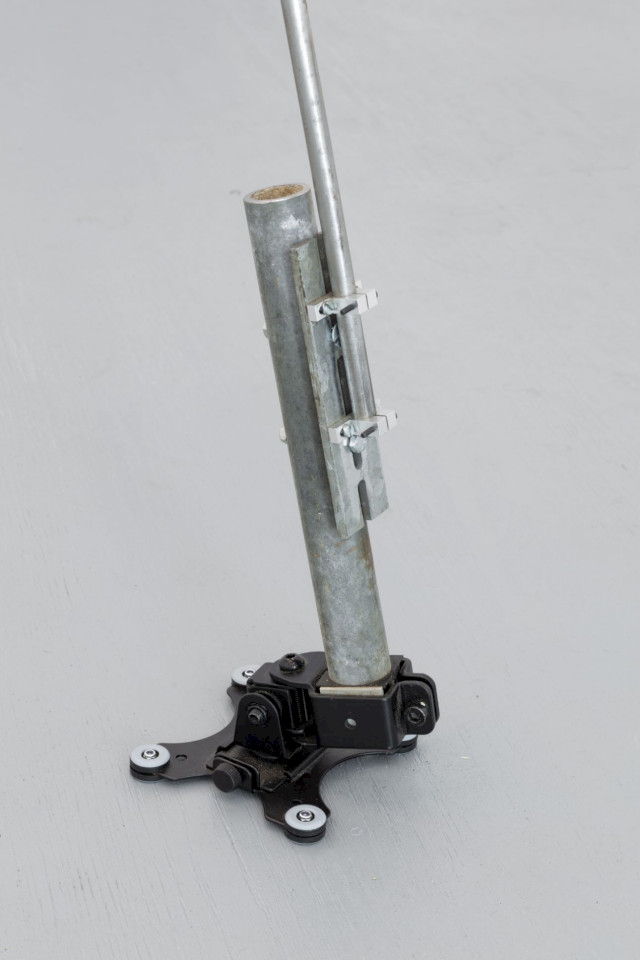
Detail
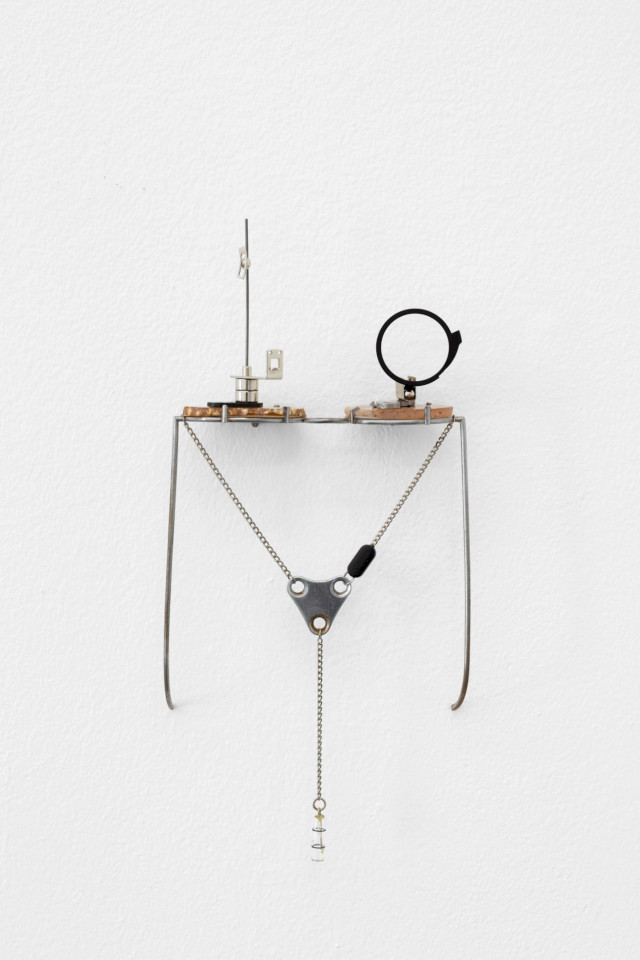
2022
Steel, glass, agate, findings, magnets, chains, snap hook; in collab. with Aline Battegay
19 × 27 cm
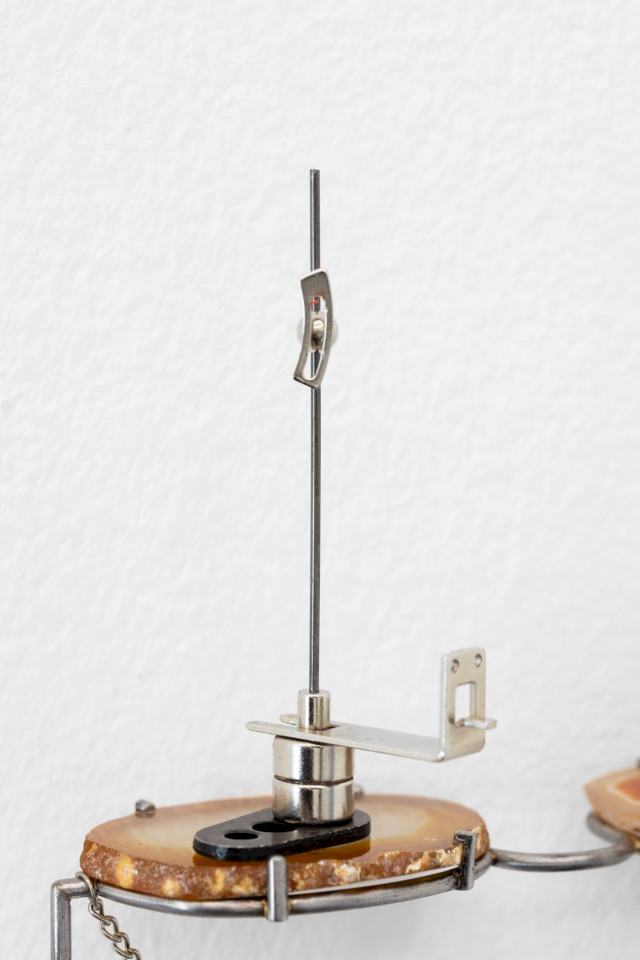
Detail
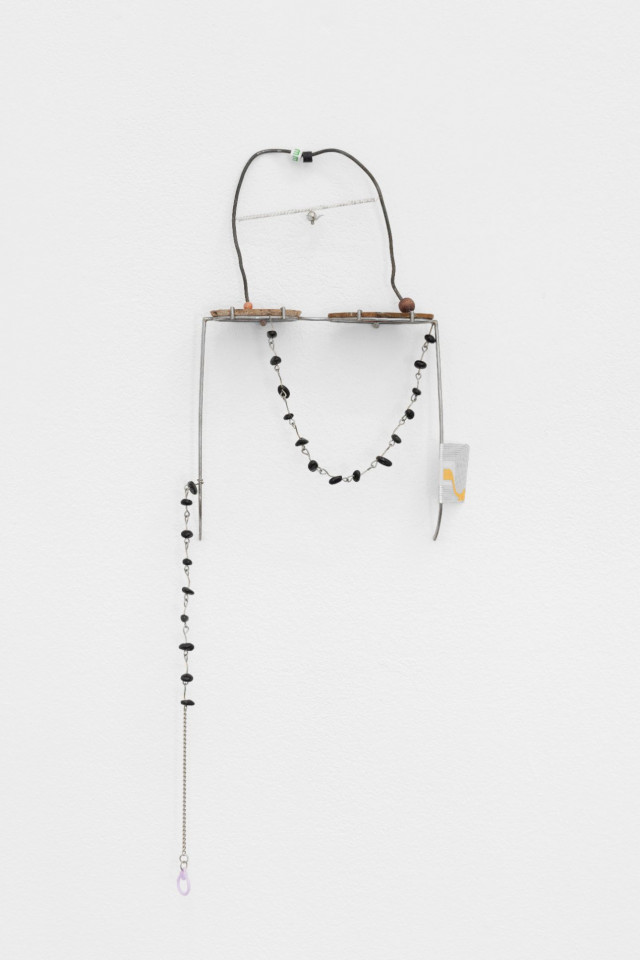
2022
Steel, agate, findings, magnets, chains, snap hook; in collab. with Aline Battegay
19 × 25 cm
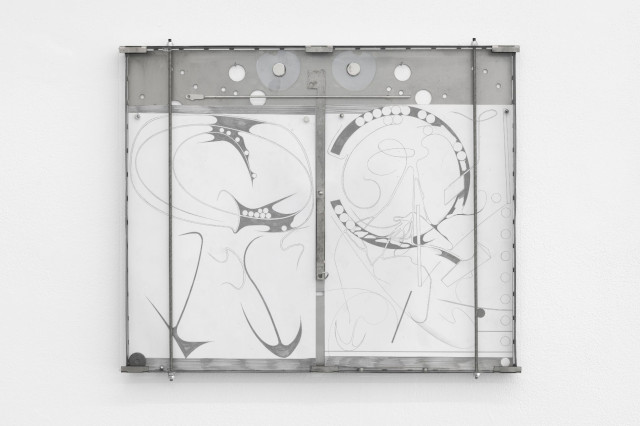
2022
Graphite on paper, magnets, metal box, glass
36,5 × 45 cm
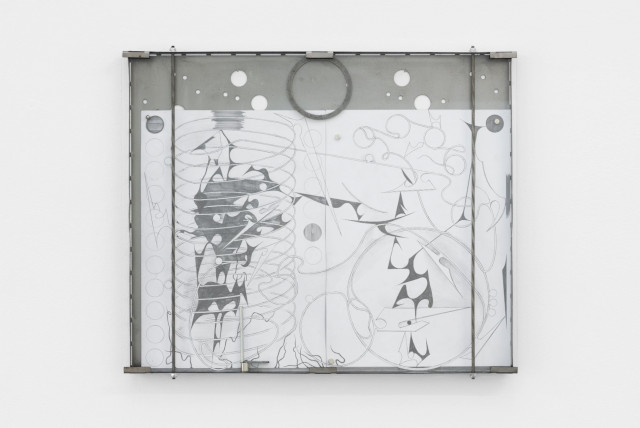
2023
Graphite on paper, magnets, metal box, glass
37 × 45 cm
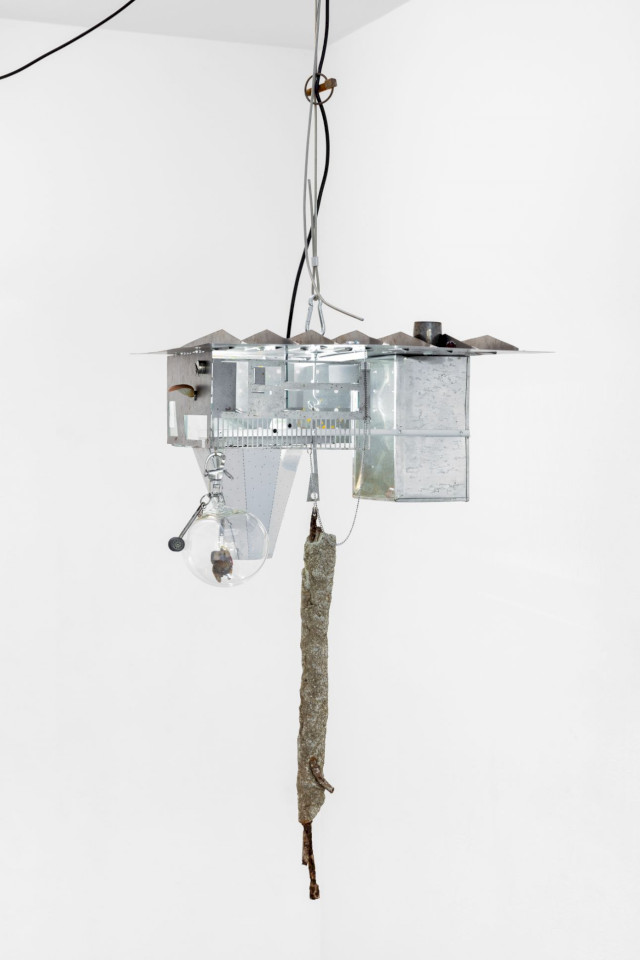
2022
Aluminum, electronic scrap, LED, cable, magnets, found objects, glass, concrete
Approx. 60 × 60 × 50 cm
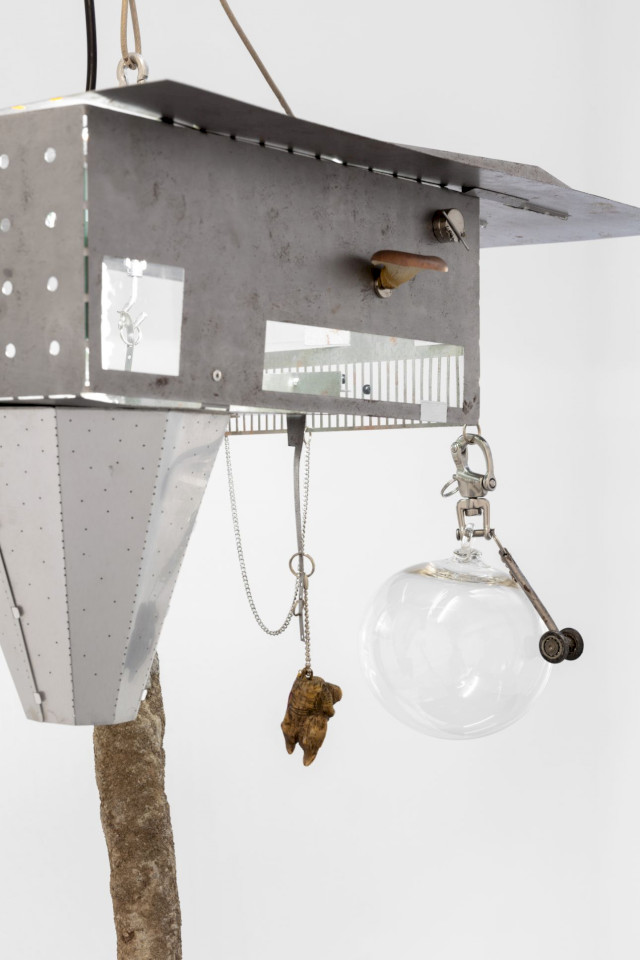
Detail
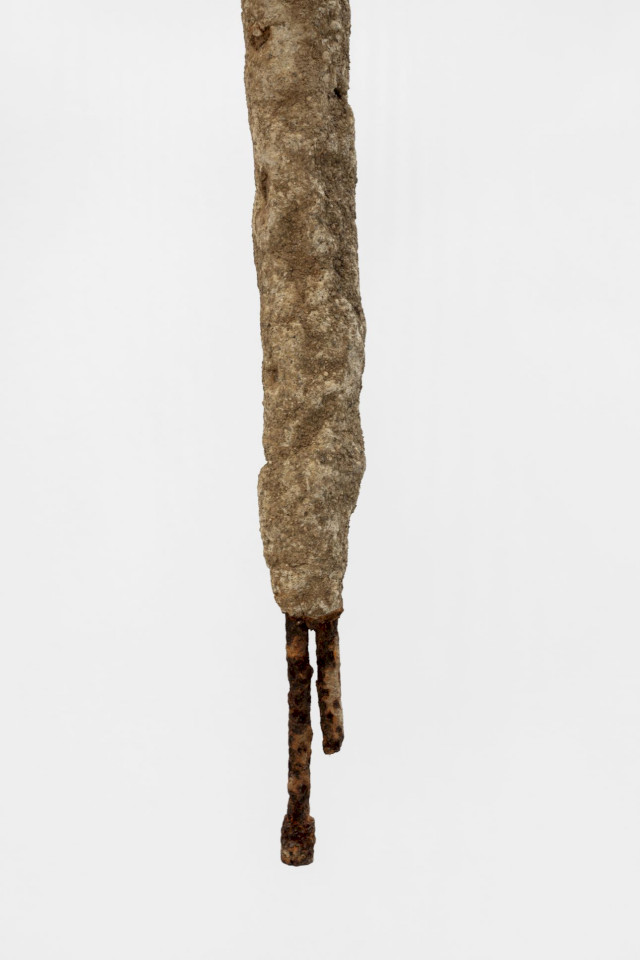
Detail
